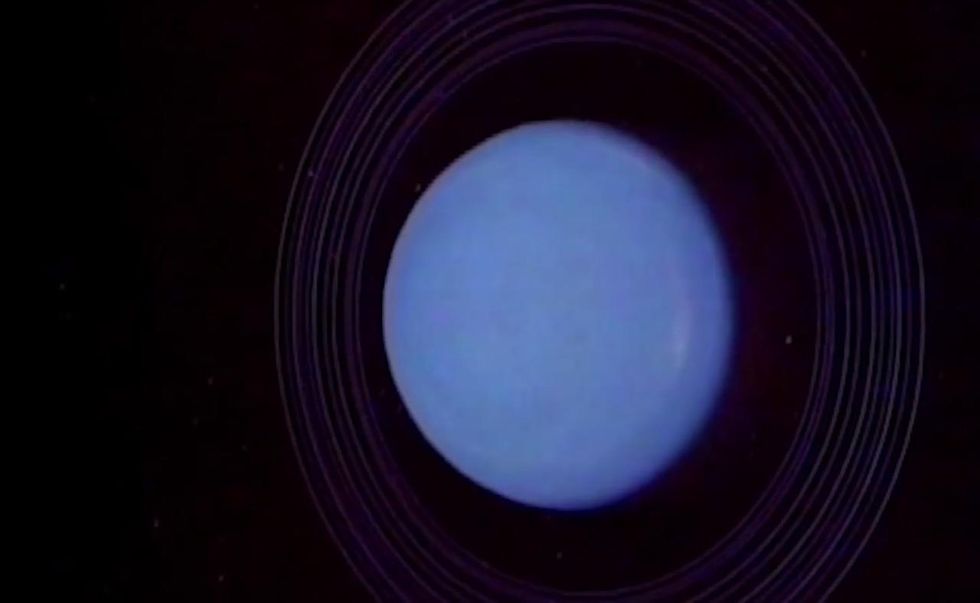
Researchers found hydrogen sulfide in the cloud tops of Uranus. Seriously. (Image source: YouTube screenshot)

Believe it or not, Uranus is smelly.
Now, you can giggle all you want, but there's some real science behind this assertion.
According to NASA, a global research team dissected infrared light from Uranus — captured by the Gemini North telescope on Hawaii’s Mauna Kea — and found hydrogen sulfide in the planet's cloud tops.
As you might know, hydrogen sulfide is a "colorless, flammable, extremely hazardous gas with a 'rotten egg' smell," according to the Occupational Health & Safety Administration. "It occurs naturally in crude petroleum and natural gas, and can be produced by the breakdown of organic matter and human/animal wastes (e.g., sewage)."
NASA said as much, calling hydrogen sulfide an "odiferous gas that most people avoid," adding that the "long-sought evidence was published in the April 23rd issue of the journal Nature Astronomy."
More from NASA:
The detection of hydrogen sulfide high in Uranus’ cloud deck (and presumably Neptune’s) is a striking difference from the gas giant planets located closer to the Sun — Jupiter and Saturn — where ammonia is observed above the clouds, but no hydrogen sulfide. These differences in atmospheric composition shed light on questions about the planets’ formation and history.
Now, if there ever came a time when we could brave a trip to the hind-end of the solar system, pass by Uranus and take a whiff, such voyagers needn't worry that the odor would do them any harm.
“Suffocation and exposure in the negative 200 degrees Celsius [negative 392 degrees Fahrenheit] atmosphere made of mostly hydrogen, helium and methane would take its toll long before the smell," Patrick Irwin, lead author of the Nature Astronomy article and a physics professor at the University of Oxford, told NASA.